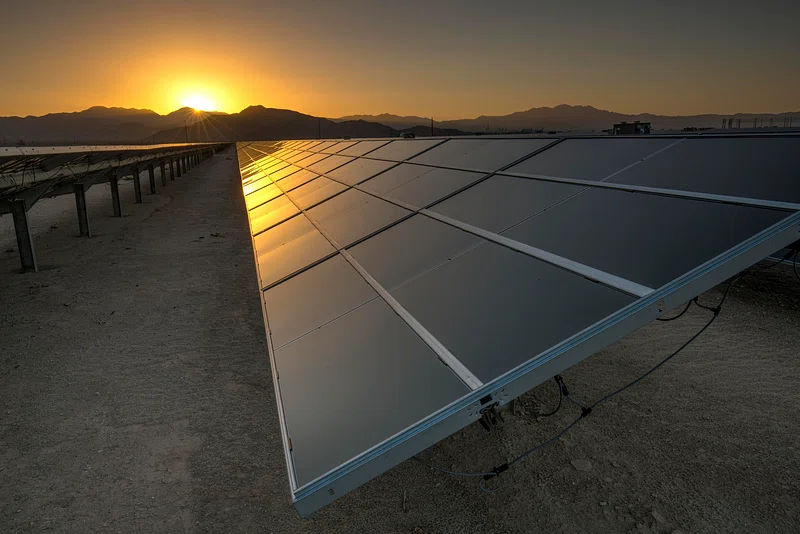News and Insights
COP29: Hopes, Challenges, and the Road Ahead in Baku
November 8, 2024
As the global community prepares for COP29 in Baku, Azerbaijan, from November 11-22, 2024, expectations are running high across a spectrum of urgent climate issues. After COP28’s ambitious commitments, Baku’s COP seeks to cement actionable policies, with several critical themes drawing the focus: climate finance, enhanced ambition, adaptation, policy-driven action, and an inclusive approach to climate governance.
Climate Finance: An Unmet Promise on the Verge of Expansion
At the heart of COP29 lies the pressing issue of climate finance. The landscape has evolved since the $100 billion per year commitment in 2009, exposing the need for a more substantial, better-structured global fund. Stakeholders are hopeful that Baku will not only recalibrate this figure for 2025 and beyond but also introduce the New Collective Quantified Goal on Climate Finance (NCQG) — a much-anticipated update designed to help nations contend with the escalating costs of climate adaptation and mitigation.
Yet, for this promise to resonate, Baku’s conference will need to address accessibility challenges within climate finance. The aim is to mobilize funds and ensure they reach the communities most impacted, particularly in the Global South. An emphasis on private sector investment is expected to be a driving factor, pushing for alignment between corporate and environmental objectives.
Enhanced Ambition: The Imperative to Meet 1.5°C
As we move into an era of climate-related extremes, countries are urged to submit more ambitious Nationally Determined Contributions (NDCs) aligned with the 1.5°C target. COP29 presents a fresh opportunity for nations to demonstrate their resolve to tackle climate change by upping commitments to phase down fossil fuels and ramp up renewable energy. Following the progress at COP28, stakeholders expect Baku to be more than a continuation — they’re looking for a paradigm shift in ambition.

The energy transition requires cooperation across borders and sectors. As we reach this critical juncture, the path to cleaner energy is paved with questions about feasibility, geopolitical tensions, and equity. Yet, the undeniable momentum toward renewables could spur the radical change many climate advocates call for.
Adaptation and Loss & Damage: Turning Promises into Protection
Adaptation is no longer a secondary issue — it’s now a critical pillar of climate action. The Loss and Damage Fund, a milestone from past COPs, still needs clearer pathways for implementation. COP29 is anticipated to approve interim steps that bring the fund closer to operationalization, offering hope to vulnerable nations disproportionately impacted by climate change.
This year, National Adaptation Plans (NAPs) could receive much-needed guidance, allowing countries to prepare for worsening climate impacts systematically. Focusing on attracting additional pledges to the Adaptation Fund is paramount, as well as ensuring adaptation measures keep pace with mitigation efforts. For the millions already facing the daily impacts of climate change, Baku represents more than a negotiation table — it’s a crucial step toward their survival.
Policy and Action: Strong Standards and Mandatory Disclosures
In Baku, stakeholders are calling for robust policies and, crucially, political bravery. Global standards that align industries and governments toward measurable, transparent goals are expected to take center stage. We’re seeing heightened interest in mandatory climate disclosures, which would hold companies accountable by requiring them to measure and report climate-related risks. This policy shift is a potential game-changer for the private sector, incentivizing corporate responsibility and aligning financial systems with climate action.
However, these moves require regulatory cooperation and enforcement. While policy changes offer a promising route to consistency and transparency, ensuring that they lead to real-world impact is an ongoing challenge. A strong outcome at COP29 would create binding standards that empower investors, consumers, and governments to make informed, climate-positive choices.
Inclusivity at COP29: An Essential Path to Lasting Solutions
Climate action that fails to include all voices is not at all. The hope for an inclusive COP29 is not merely rhetoric; it’s an absolute necessity. This conference is poised to foster genuine participation from the private sector, youth advocates, and civil society, amplifying the perspectives of those who often remain on the sidelines of high-level negotiations. This inclusivity promises greater equity and more innovative and sustainable solutions.
Thematic Focus: Connecting Climate to Broader Issues
Baku’s thematic focus spans finance, energy, science and technology, human capital, food and agriculture, urbanization, and nature and biodiversity. These aren’t just buzzwords but essential components of a holistic climate approach. By connecting climate targets with issues like food security, sustainable urban development, and biodiversity conservation, COP29 aims to redefine what it means to tackle climate change on all fronts.
A Stepping Stone to COP30
While some see COP29 as a preparatory step for COP30 in Brazil, the urgency of the climate crisis demands immediate, meaningful progress now. The decisions made in Baku will undoubtedly shape the narrative leading into COP30, but they must also stand on their own merit, pushing us toward a world more resilient to climate shocks.
As we approach this pivotal conference, the world holds its breath, hoping that COP29’s ambitions will translate into tangible outcomes. The climate clock continues to tick, and Baku offers one more chance for leaders to turn the tide before time runs out.
